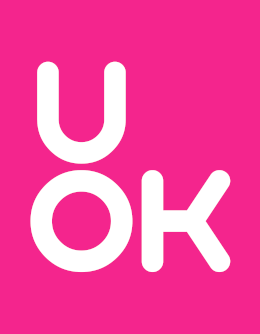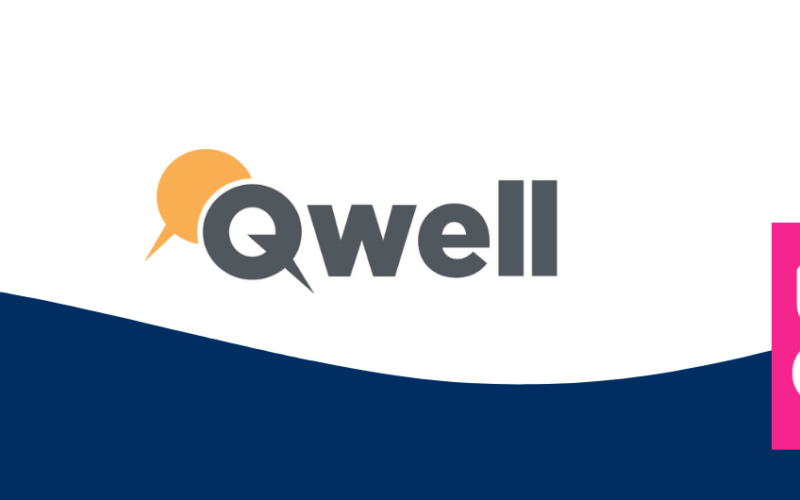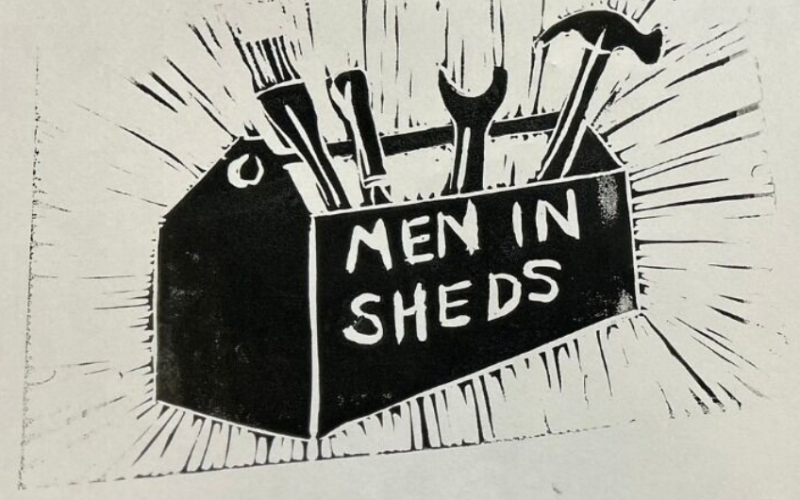This year World Autism Acceptance Month (WAAM) is being celebrated throughout April 2025.
To celebrate World Autism Awareness Day on Wednesday 2nd April, Recovery College hosted a short workshop being delivered by Alice, one of our wonderful Recovery College Peer Tutors, who has their own lived experience as an autistic person.
The workshop was open for all professionals in Brighton & Hove who work with, and support, autistic people. Here some snippets of the workshop.

I am different, not less
-Temple Grandin
What is Autism?
It is hard to define. It is a genetic neurodevelopmental condition. It is a life long, spectrum condition- every person is affected differently, but will be affected throughput their life. It is a kind of neurodiversity which covers anyone whose brain works differently to the majority of people.
One thing I took away from this workshop was that ‘All behaviour is communication.’ What we may interpret as difficult or upsetting behaviour is just the person communicating their needs and it reflects their own struggle to fit into a world that is not designed keeping them in mind. The workshop spoke about the correct terminology to address people with autism, what autism looks like, the challenges for autistic people, the social model of disability. Topics of challenges and strengths at workplace and how we can be better allies was also touched upon. It was very insightful to learn that every autistic person is different and that there is a way to be aware of the needs of an autistic person and make small changes to support them. A disability is a disability, only because the world is not accessible.
Some realistic tips I took away:
- There are ways to be more specific when speaking to an autistic person. Instead of “How can I help/support you?”, a question like ” Would it help if I did…” or “Here are some things that people say helps them. Which of them applies to you?” is more useful.
- Do not rely on body language or social cues to communicate. Say exactly what you mean.
- Small things like sending reminders before meetings can mean a lot. The key is in being considerate and remembering that small actions make the biggest difference.
One of the participants, Audrey from SpeakOut, Brighon and Hove said that:
“This has given me so much insight into a couple of people’s inner lives specifically. I feel like I can communicate better with them. It’s also good to think of how the organisation can communicate with autistic people better. We run a lgbtq+ group for young people. I did not realise the link between these groups and autism, it’s a good connection to make.”

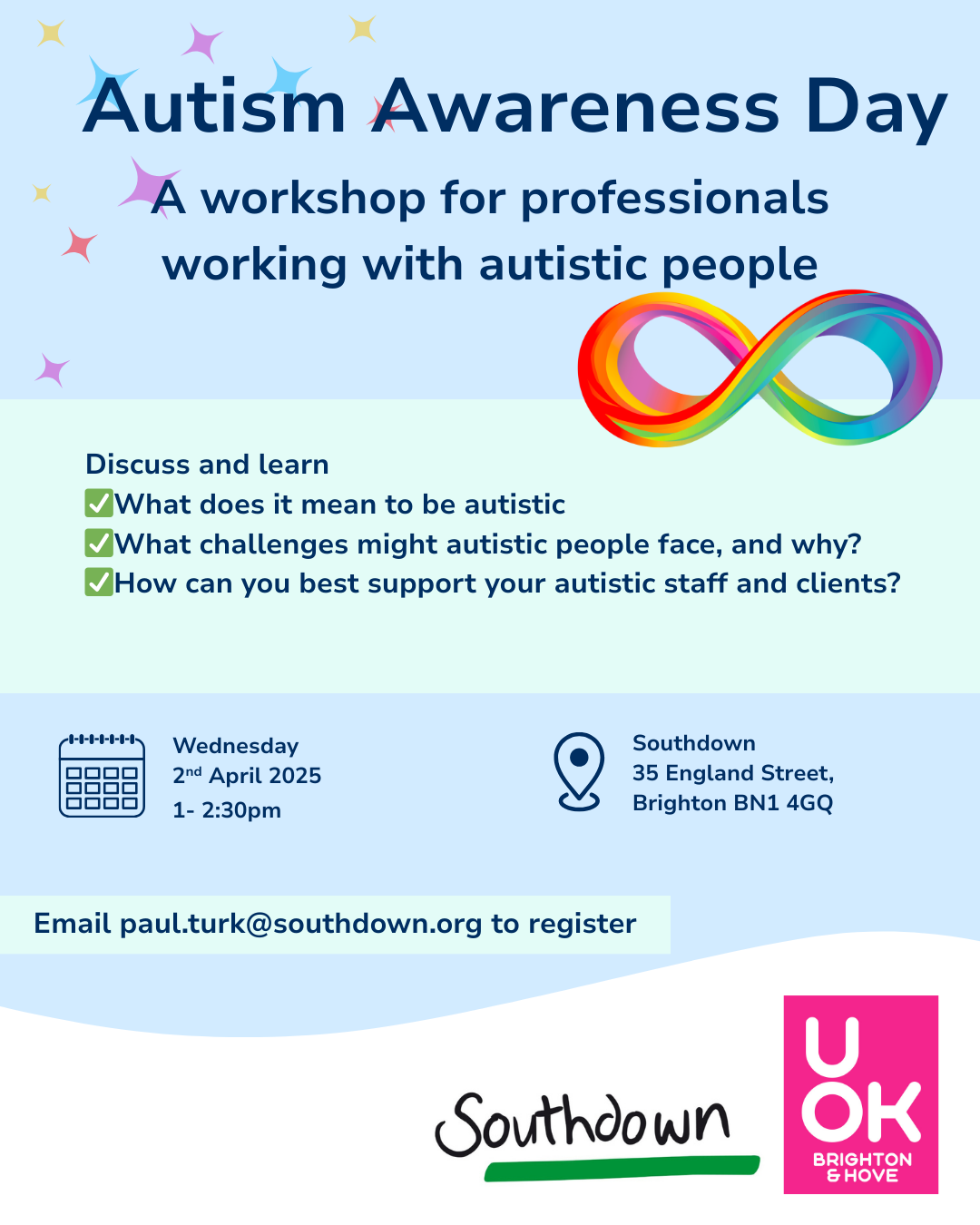
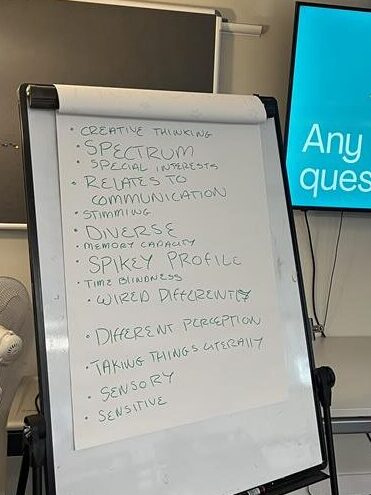
This workshop was an invaluable opportunity to deepen our understanding of autism and how we can better support those on the spectrum. As we continue to celebrate World Autism Acceptance Month, let’s remember that our actions, no matter how small, can make a significant difference in creating a more inclusive world.
